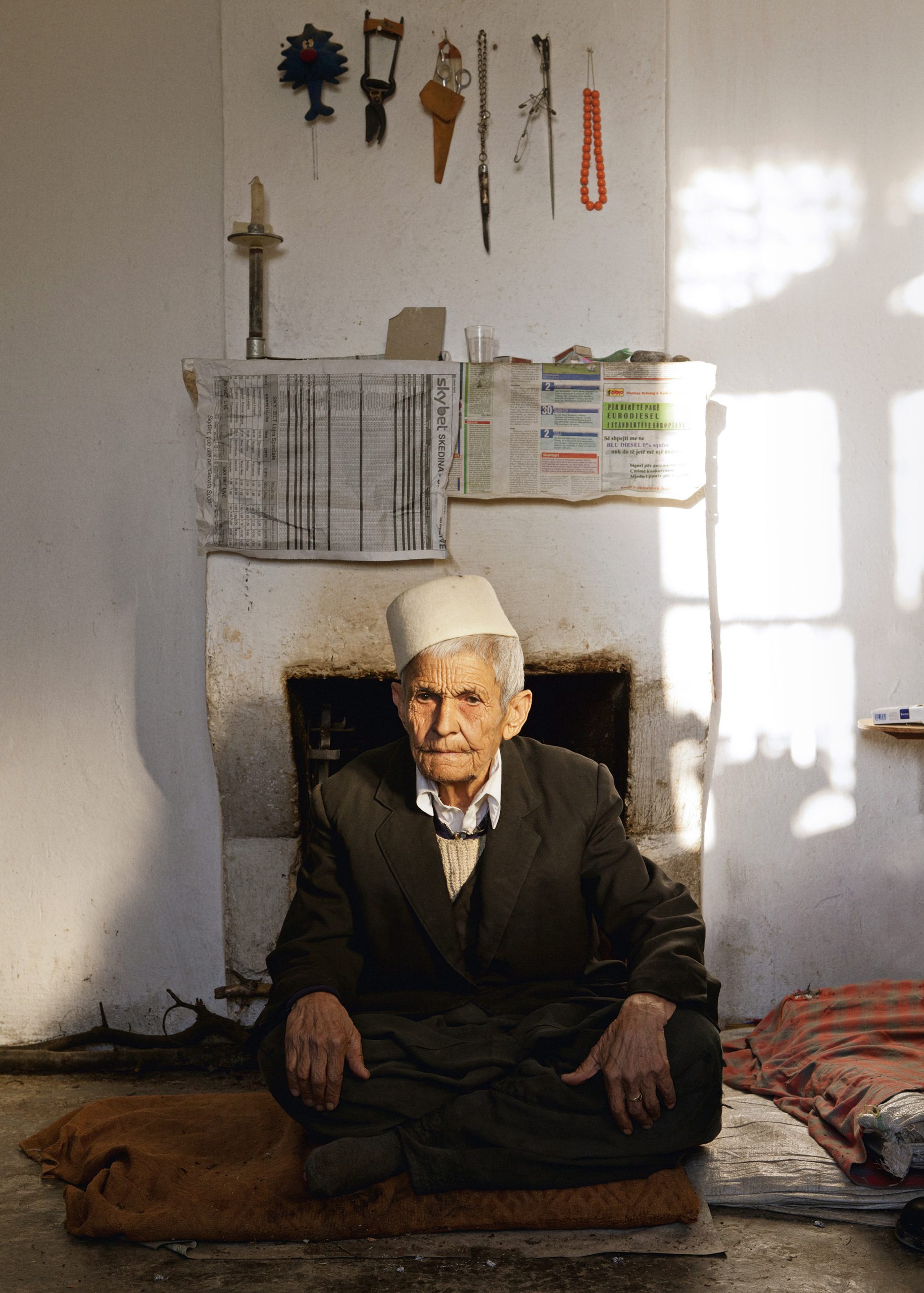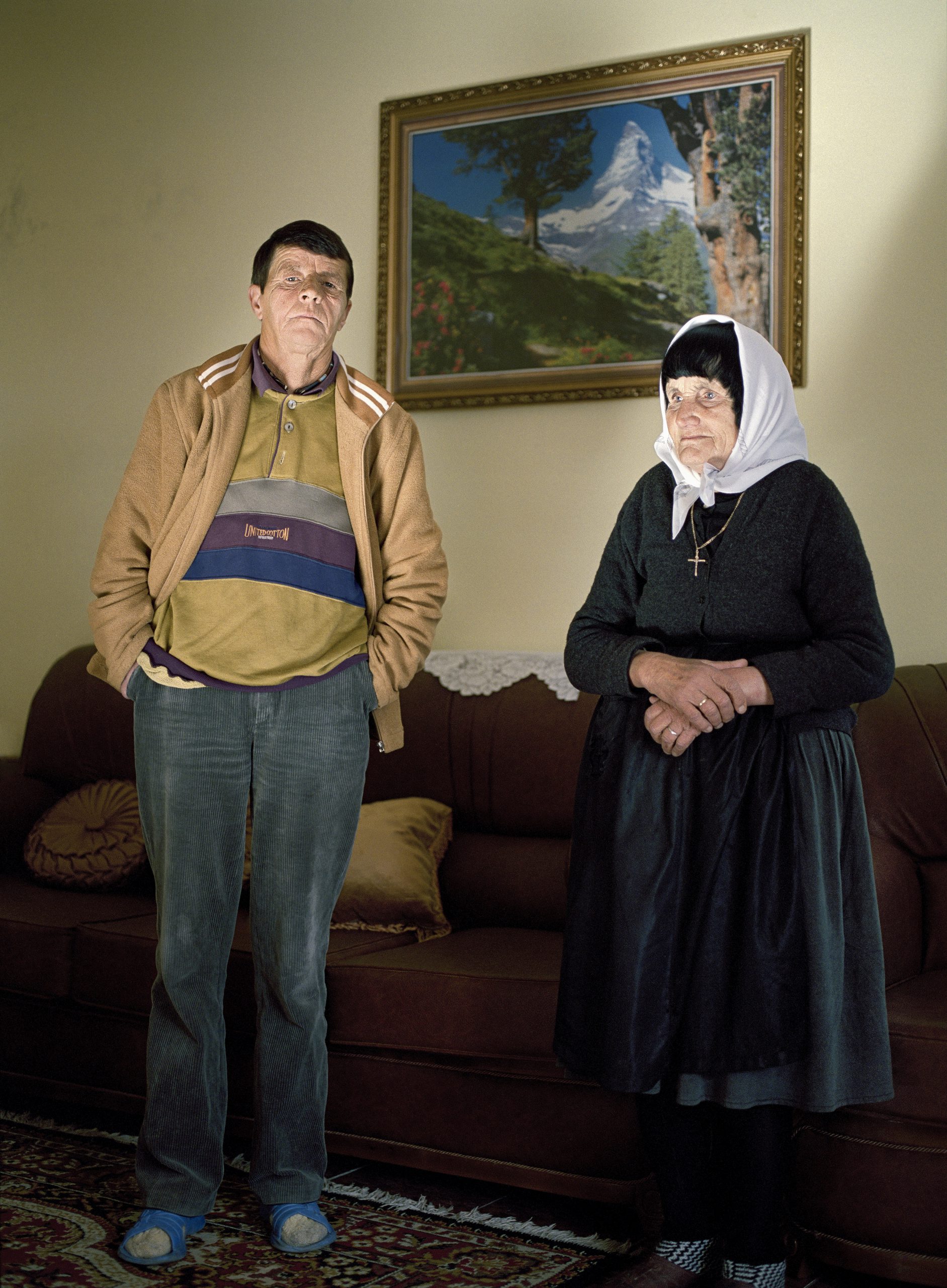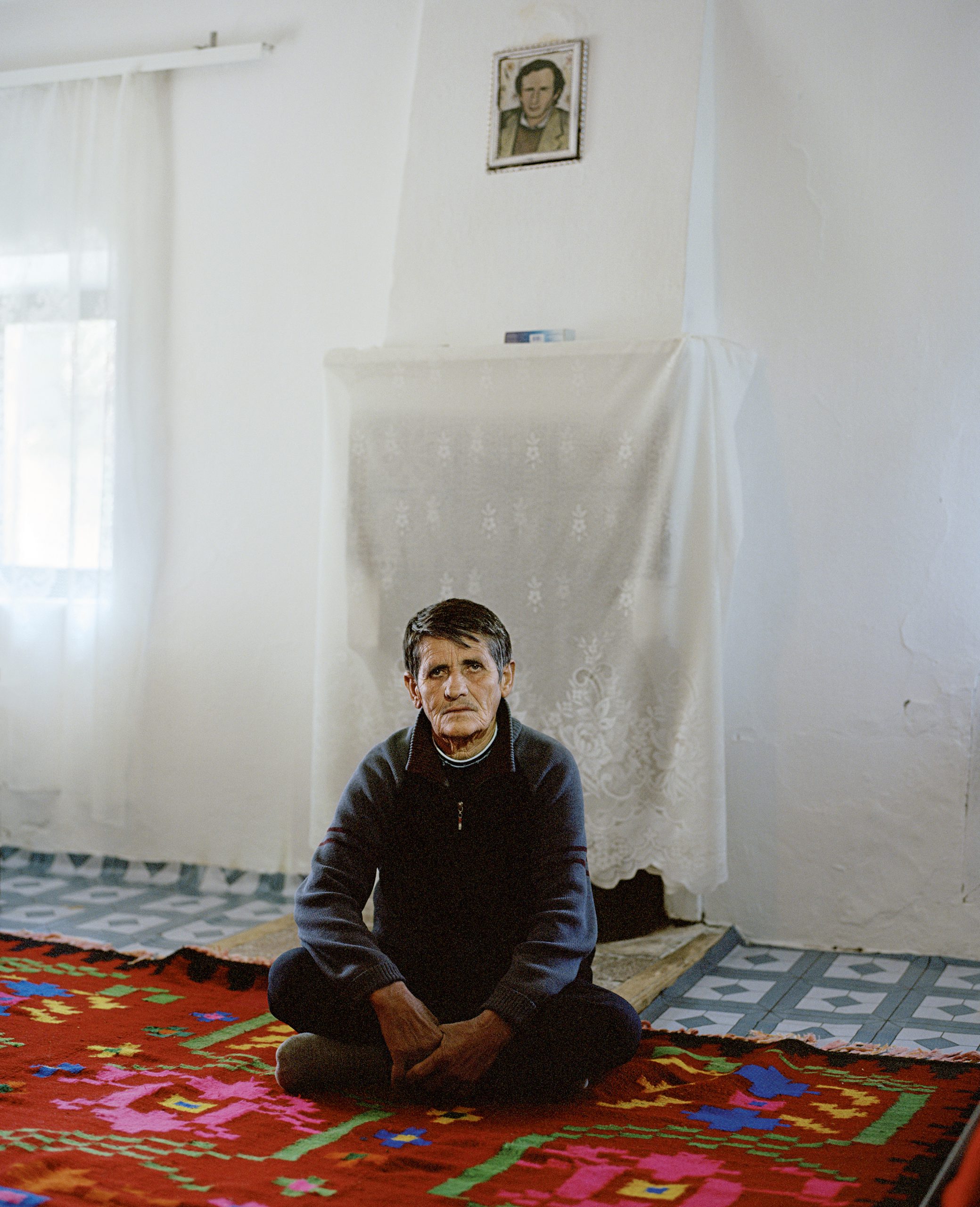Gender hierarchy is still embedded in many cultures, but not every culture has the same hierarchical order and appreciation of gender roles. This story delves into the complex world of the sworn virgins of northern Albania, with photos by photographer Pepa Hristova.
“Sworn virgins” are women who decide to live as men. They usually do this for two reasons: to escape strict patriarchal structures and forced marriage, or to replace the male head of the family in case of his death. To tell the story of the sworn virgins, we have to go back a few steps and provide some context about the world Albanians lived in for a long time. The formerly repressive country was mired in communist isolation for 46 years. During the Second World War, in 1943, Enver Hoxha became the leader of the Albanian Communist Party and turned to draconian measures to impose his form of Stalinism. Religion can and should be viewed critically, but in communist Albania its practice was entirely forbidden, as was the reading of Western literature. Hoxha recruited partisans to form the Sigurimi, the Albanian secret police service, which tens of thousands of people fell victim to. Between 1945 and 1991 Albanians were not allowed to leave the country except on official government business; any attempt to cross Albania’s borders was considered high treason and – in the best case – led to imprisonment.
Mushroom-shaped and underground bunkers, Stalinist-influenced monumental buildings, and a brutalist concrete pyramid – originally dedicated to Hoxha, who died in 1985, temporarily used as a club and now being converted into a cultural and educational centre for young people – are still reminders of those demanding times in Albania. Right next to Tirana’s Palace of Culture and the approximately 38,000-square-metre Skanderbeg Square, stone steps lead down into one of these former nuclear bunkers. Within its walls, a museum aims to brand the history of the communist regime, in particular the violent acts of the Sigurimi, into the collective memory. In 1990 people took to the streets and vandalised symbols of the state, setting government buildings and public transport on fire, and 11 December of that year finally saw the legalisation of the country’s opposition parties.
The chains of the communist regime prevented the country from developing a national identity before democratisation, and the only codex by which Albanians lived for a long time dates back to the Middle Ages: the Kanun, a set of customary laws that shapes the lives of Albanians to this day.

Qamile was the youngest of nine girls and joined the village men’s circle at the age of nine. From that moment, she was raised as a son. As the only male in the family, she inherited the house where she was born after her parents had died. She was called “Grandpa Qamile”, but over the years her female side resurfaced. Her movements became gentler, her facial features softer. Qamile has unfortunately passed away, as Pepa Hristova tells us. Photo: Pepa Hristova
The Albanian term “Kanun” refers to the totality of traditional norms and rules that standardise society in criminal, civil and procedural law. These include life in multigenerational households, where three generations traditionally lived under one roof headed by the eldest man. Especially in northern Albania, the strict laws of the Kanun continue to have an impact on social structures. Set out in twelve books, its 1,262 articles cover all aspects of life in Albania’s hinterland, from regulating economic and family organisation, hospitality and brotherhood, to boundaries, property and livestock.
Women were barely granted any rights in this social order. They play a marginal role overall, and still worse, they are considered “shakull”, a sack in which goods are transported. The woman is a vessel, an object, not a subject.
The patriarchal structures, role distributions and gender-specific division of labour mean that the country is still a far cry from gender equality: women are more often unemployed, more economically dependent, work more often in the informal sector and are underrepresented in politics. While much progress has been made in securing women’s and girl’s legal rights, these rights are insufficiently enforced. And even though the Kanun no longer has legal force in Albania today, it is reflected in the socio-economic divide where men are the main actors in society and women are sexualised, objectified and deemed accessories.
The “besa” is considered a lifelong promise, a promise that sworn virgins, too, must keep in order to preserve their honour. […] Article 589 cites the punishment for one who has sworn falsely: the mark of dishonour remains on their family until the seventh generation.
According to the Kanun, men traditionally perform heavy physical work, entertain visitors, and are free to smoke, drink and uphold the family honour – if necessary, by bloodshed. Two sections of the Kanun are dedicated to the “besa”. The besa is an oath or binding promise and a cornerstone of social conduct. The besa is considered a lifelong promise, a promise that sworn virgins, too, must keep in order to preserve their honour. The oath constitutes a religious expression, which makes it legally binding. Article 589 cites the punishment for one who has sworn falsely: the mark of dishonour remains on their family until the seventh generation.
Women who become men
Two decisive factors help explain why women decide to live their lives in a socially male role as sworn virgins: the low status of women and the lack of a male head of the family.
From an anthropological perspective, north Albanian society is a strictly patriarchal, patrilocal society under great social pressure. Blood feuds were highly ritualised – for a long time, honour killing was not considered murder but a justified act claiming – male – victims.

Drande burned her girls’ clothes after eighth grade and took her oath at 19, after her father had died. As a child, she lost both of her hands when playing with a hand grenade from the Albanian civil war. The male role helps her deal with her physical weakness. “No one wants a woman without hands,” she says. Photo: Pepa Hristova
The role of head of the household is considered a prestigious position, states the Kanun. In contrast, the woman is a “sack made to endure as long as she lives in her husband’s family”. For women, marriage is equivalent to losing their identity. The bullet traditionally given to a groom by his bride’s parents serves as a symbol and even motivation for him to shoot his wife should she be unfaithful.
The decision to live as a sworn virgin is made either during childhood by the parents or later by the woman herself. Choosing to live as a sworn virgin has helped women to enjoy more freedom. Sworn virgins wear men’s clothes and have short hair. They carry guns, they drink, they smoke, and they abstain from sexual relations, marriage and children. By becoming sworn virgins, women deprived of rights became the heads of families, owners of their birth houses, represented the family at village meetings and managed their own property.
Anthropologist Antonia Young researches and writes about Albania and other Balkan countries. In her book Women Who Become Men: Albanian Sworn Virgins, she highlights the importance of clothing in the cultural construction of gender. Think of weddings in the heteronormative, traditional sense or the colouring of baby clothes. Male clothing emancipates women. But Young also points out that the change in clothing comes with enormous social pressure to conform to conventional, predefined gender roles.
Antonia Young is anthropologist and has spent many years with sworn virgins, Young noticed that each woman acts out her vow individually and interprets her role of being a sworn virgin differently.
Having spent many years with sworn virgins, Young noticed that each woman acts out her vow individually and interprets her role of being a sworn virgin differently. Sworn virgins predominantly lived, and still live, in northern Albanian mountain regions. However, they were also found in more urban areas, where the role as head of the household was less important, nevertheless endowing women with equal status to men. The sworn virgins Young spoke to said they felt very positive about their social and cultural gender transition, seeing it as the best way to integrate into their families. However, Young also cites a sworn virgin, Pashke, who never managed to adjust to her role. “I am sorry for others who lead this kind of life. I had no other option, given my circumstances. I cannot go back on my decision.”

Rahime is called Uncle by the younger members of her family. She considered it an honour to take care of her family after her brother’s death and became a “burrnesha” (sworn virgin) at the age of 25. She took an oath to remain a virgin forever and to take on men’s duties. Photo: Pepa Hristova
For the other women, it was the prestige of living the life of a man that mattered most. None of the sworn virgins reported discrimination, although their decision resulted in renouncing sexuality, marriage and children. They were accepted, even revered, within their community.
The Western perspective and prejudice
Gender identity is not necessarily linked with sexual orientation. The sworn virgins were and are embedded in a culture that lives according to heteronormative ideas. The Western perspective on the practice of sworn virgins poses two particular risks. Issues around sexuality and gender identity tend to attract interest. Young has found that the phenomenon is often sensationalised. The other risk is projecting affluent Western societies’ sexual ideas onto northern Albanian culture.
In her book, Young writes about the difficulty of categorising sworn virgins as either male or female. Anthropologist Mildred Dickemann describes them as “transgendered individuals who have become social men leading masculine lives”, since sworn virgins take on the role and identity of men and enjoy traditional male status. However, she also points to the fact that the concept of transsexualism, which has developed in a culture that recognises only two genders, is not applicable in this context. The phenomenon rather shows that gender is a culturally constructed concept.
There is no certainty as to the exact numbers of sworn virgins who still exist today, but Young reckons that this traditional gender role change will most likely die out within one or two generations due to rapid societal change. We can only hope that the image of women that the Kanun has indoctrinated into society will change too.
Original in German. First published in the #03/2023 (February) issue of period.
Translated into English by Barbara Maya.
This text is protected by copyright: © Isabella-Anja Khom / period. If you are interested in republication, please contact the editorial team. Copyright information on pictures, graphics and videos are noted directly at the illustrations or on top of the article. Cover picture: Hakije was brought up as a boy from birth because a dervish had prophesied a son to her parents. She lived in her parents’ house, alone and secluded, tending to the dervish’s resting place, until she died. Photo: Pepa Hristova